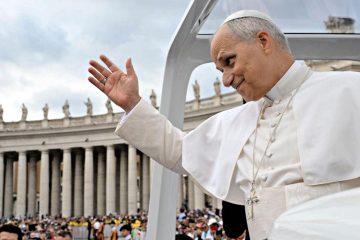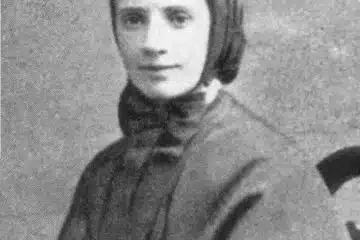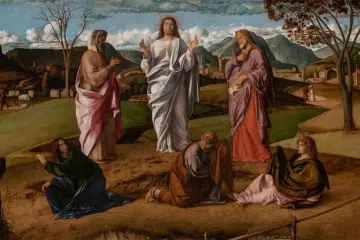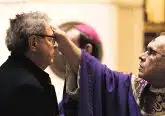There is No Hope for What Cannot Be

Even before you reach the end of this sentence, you will begin to hum in your head the tune of the silly little song, “High Hopes,” written by Jimmy Van Heusen and Sammy Cahn and made famous by Frank Sinatra. “Just what makes that little old ant think he’ll move that rubber tree plant?” the song asks. The implication, “as anyone knows,” is that “an ant can’t move a rubber tree plant.” But in the song, the ant does move the rubber tree plant. And later, a goat punches a hole in a dam even though, again, we know that is impossible. So why could the ant and goat achieve these impossible feats? Because they have “high hopes.” In other words, the song implies if you hope hard enough, you can do the impossible.
This is not what hope means, at least not in the Christian tradition. Indeed, it is the opposite of authentic hope. One cannot hope for an impossible outcome or occurrence. And if we think that hope somehow implies that anything is possible for one who hopes hard enough, we are missing the actual rich meaning of the virtue of hope. Moreover, if this is our understanding of hope, we expose ourselves to its opposite vice, despair.
A Theological Virtue
With faith and charity, hope is one of the three theological virtues, which predispose and orient a person toward a relationship with God. As gifts from God, the practice of these virtues animates our Christian lives and deepens our moral and spiritual development. The theological virtues are the necessary foundation for the cardinal moral virtues of justice, temperance, fortitude, and prudence, which govern the concrete moral actions of individual persons. Without the theological virtues that orient us toward God, the moral virtues can never be properly ordered.
As one of the theological virtues, hope is the activity by which we perfect our desire to be united with God as our highest good and final rest. Hope is the action of placing our trust in the merits of the death and Resurrection of Christ. It is not mere wish or simple passive desire. Rather, as a virtue it is the proactive and deliberate exercise of the aspiration to be with God. Hope is not static wish but the practice of an intentional objective to enjoy the reward of heaven in eternal glory.
Hope and the Restless Heart
In addition to being a practice rather than mere wish, hope is the exercise of the natural inclination of the human person to fulfil our purpose in this life. This predisposition is sometimes called “synderesis.” Synderesis is the natural, albeit fallen, proclivity for humans to choose what is good for us. Of course, we are often mistaken about what we think is good, which is one implication of the fall in Genesis 3. The natural penchant to seek the good is damaged by sin, but it is not destroyed. Thus, the capacity of synderesis, properly directed, leads us toward our true good, as informed by faith.
The conviction that there is a true ultimate good toward which every human person is ordered is called “teleology,” derived from the Greek word “telos,” meaning end, completion, or final destination. This describes the theological principle that we are all ordered toward the common end of love for and rest in God. Without regard to history, race, ethnicity, linguistic, or other demographic factors, each of us is made properly ordered toward God.
Together, synderesis and teleology are the framework for the doctrine of hope. Hope is the substantive expression of that natural inclination to seek what is good for us, and to orient our lives toward the perception of the good. This is, at least in part, why St. Augustine famously declared that our hearts are restless until we find our rest in God. The restlessness of which Augustine speaks is the natural inclination of synderesis. The hope of resurrection is the substance that fills that inclination as we turn our eyes toward the crucified and risen Christ.
Holding Fast to Hope
As noted above, hope is only real when the object of our desire is something true and achievable. One cannot hope for something that is not real or that is not attainable. All these considerations are at work in the Book of Hebrews, where the author says, “Let us hold unwaveringly to our confession that gives us hope, for he who made the promise is trustworthy” (Heb 10:23). Our true hope is in the true Resurrection of our Lord, which we confess each Sunday at Mass. If Christ did not rise from the dead, hope is a delusion, not a virtue. Thus does St. Paul say, “If for this life only we have hoped in Christ, we are the most pitiable people of all” (1 Cor 15:19). Only if Christ is raised from the dead can we also have authentic hope in our own resurrection.
That little old ant can’t move a rubber tree plant. That’s a delusion. But we can be resurrected with Christ.
That’s a high hope indeed. ✣
 Dr. Kenneth Craycraft holds the James J. Gardner Chair of Moral Theology at Mount St. Mary’s Seminary & School of Theology. He is the author of Citizens Yet Strangers: Living Authentically Catholic in a Divided America.
Dr. Kenneth Craycraft holds the James J. Gardner Chair of Moral Theology at Mount St. Mary’s Seminary & School of Theology. He is the author of Citizens Yet Strangers: Living Authentically Catholic in a Divided America.
This article appeared in the December 2025 edition of The Catholic Telegraph Magazine. For your complimentary subscription, click here.













